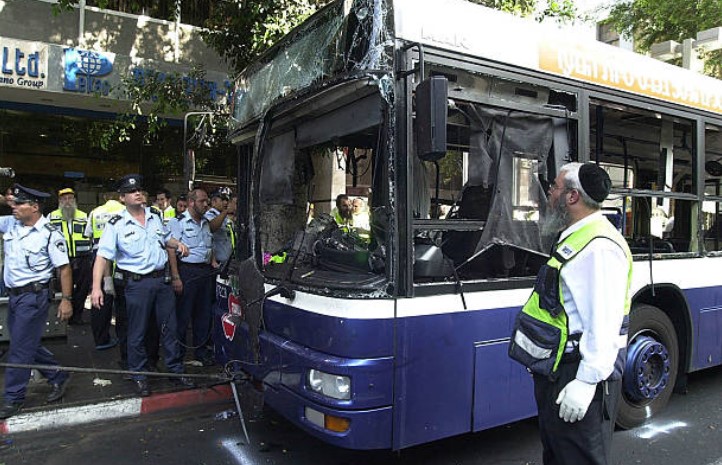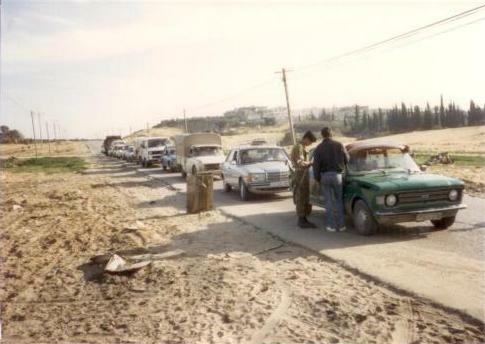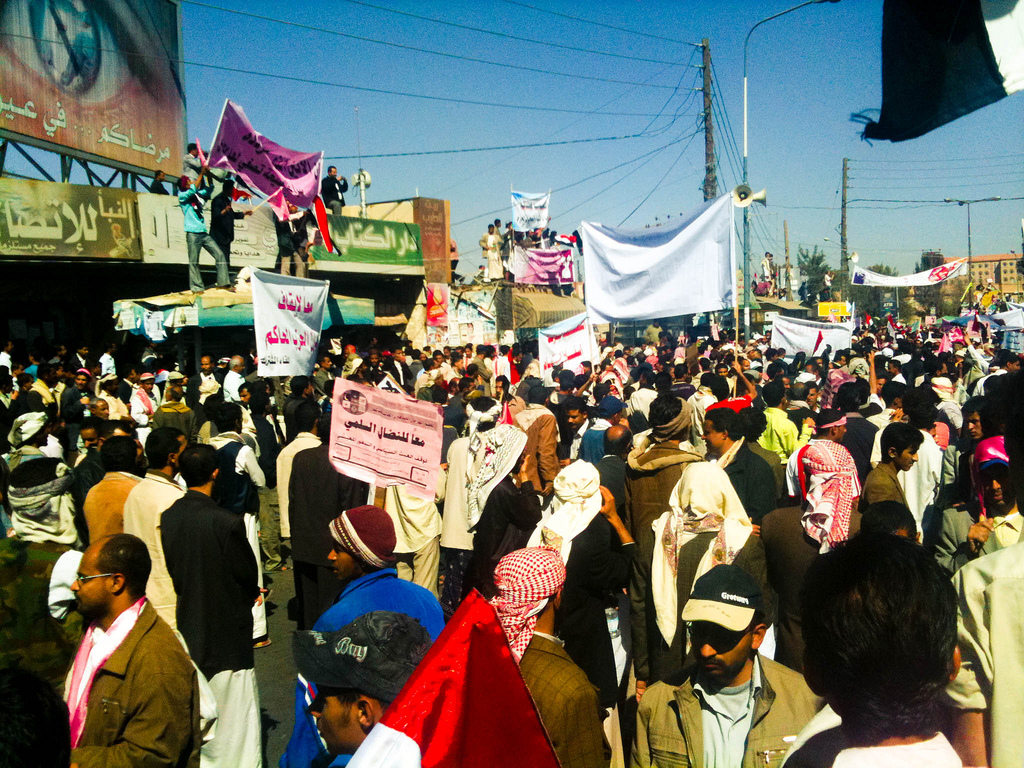|
Intifada
An intifada ( ar, انتفاضة ') is a rebellion or uprising, or a resistance movement. It is a key concept in contemporary Arabic usage referring to a legitimate uprising against oppression.Ute Meinel ''Die Intifada im Ölscheichtum Bahrain: Hintergründe des Aufbegehrens von 1994-1998,''LIT Verlag Münster, 2003 p.10: 'Der Begriff der Intifada, der die Vorstellung eines legitimen Ausbebegehrens gegen Unterdrückung enthält, ist gegenwärtig ein Schlüsselbegriff in der arabischen Welt, von dem eine grosse emotionale Anziehungskraft ausgeht.' Etymology ''Intifada'' is an Arabic word literally meaning, as a noun, "tremor", "shivering", "shuddering".Mary K.Roberson, 'Birth, Transformation, and Death of Refugee Identity: Women and Girls of the Intifada,' in Ellen Cole,Esther D Rothblum,Oliva M Espin (eds.''Refugee Women and Their Mental Health: Shattered Societies, Shattered Lives,''Routledge, 2013 p.42. It is derived from an Arabic term ''nafada'' meaning "to shake", "shake ... [...More Info...] [...Related Items...] OR: [Wikipedia] [Google] [Baidu] |
2014 Jerusalem Unrest
The 2014 Jerusalem unrest, sometimes referred as the Silent Intifada (other names given include urban intifada, Firecracker intifada, car intifada, Jerusalem intifada, and Third intifada) is a term occasionally used to refer to an increase in violence focused on Jerusalem in 2014, especially from July of that year.Nathan Thrall'Rage in Jerusalem,'London Review of Books Vol. 36 No. 23 4 December 2014, pages 19-21.'The current upsurge in protests and violence has been called the silent intifada, the individual intifada, the children's intifada, the firecracker intifada, the car intifada, the run-over intifada, the Jerusalem intifada and the third intifada. But what it most closely resembles isn't the First (1987-93) or the Second (2000-05) Intifada but the surge in unco-ordinated, leaderless violence that preceded the largely non-lethal protests in the early part of the First Intifada.' Although the name "silent intifada," appears to have been coined in the summer of 2014, suggestio ... [...More Info...] [...Related Items...] OR: [Wikipedia] [Google] [Baidu] |
Al-Aqsa Intifada
The Second Intifada ( ar, الانتفاضة الثانية, ; he, האינתיפאדה השנייה, ), also known as the Al-Aqsa Intifada ( ar, انتفاضة الأقصى, label=none, '), was a major Palestinian uprising against Israel. The general triggers for the unrest are speculated to have been centred around the failure of the 2000 Camp David Summit, which was expected to reach a final agreement on the Israeli–Palestinian peace process in July 2000. Outbreaks of violence began in September 2000, after Ariel Sharon, then the Israeli opposition leader, made a provocative visit to the Temple Mount in Jerusalem; The visit itself was peaceful, but, as anticipated, sparked protests and riots that Israeli police put down with rubber bullets and tear gas. High numbers of casualties were caused among civilians as well as combatants. Israeli forces engaged in gunfire, targeted killings, and tank and aerial attacks, while the Palestinians engaged in suicide bombings, ... [...More Info...] [...Related Items...] OR: [Wikipedia] [Google] [Baidu] |
First Intifada
The First Intifada, or First Palestinian Intifada (also known simply as the intifada or intifadah),The word ''intifada'' () is an Arabic word meaning "uprising". Its strict Arabic transliteration is '. was a sustained series of Palestinian protests and violent riots in the West Bank, Gaza Strip, and within Israel. The protests were against the Israeli occupation of the West Bank and Gaza that had begun twenty years prior, in 1967. Lockman; Beinin (1989), p.&nbs5./ref> The intifada lasted from December 1987 until the Madrid Conference in 1991, though some date its conclusion to 1993, with the signing of the Oslo Accords. The intifada began on 9 December 1987, in the Jabalia refugee camp after an Israeli Defense Forces' (IDF) truck collided with a civilian car, killing four Palestinian workers, three of whom were from the Jabalia refugee camp.Michael Omer-MaThe accident that sparked an Intifada 12/04/2011 Palestinians charged that the collision was a deliberate response fo ... [...More Info...] [...Related Items...] OR: [Wikipedia] [Google] [Baidu] |
Independence Intifada (Western Sahara)
The Independence Intifada or the Second Sahrawi Intifada (''intifada'' is Arabic for "uprising") and also May Intifada is a Sahrawi activist term for a series of disturbances, demonstrations and riots that broke out in May 2005 in the Moroccan- controlled parts of Western Sahara and south of Morocco. This event has also been called The El-Aaiun Intifada by the same sources. Background Western Sahara, formerly Spanish Sahara, was annexed by Morocco in 1975, as Spain pulled out. A war with the Polisario Front, which according to the UN represent the indigenous Sahrawi population, and was backed by neighboring Algeria, ensued. In 1991 a cease-fire was agreed upon, on the condition of a referendum on self-determination (including the options of independence or integration into Morocco). Since 1991 the terms of a referendum have been subject to years of dispute between the parties, although the cease-fire continues to hold despite remaining tensions. Morocco controls the majorit ... [...More Info...] [...Related Items...] OR: [Wikipedia] [Google] [Baidu] |
First Sahrawi Intifada
The First Sahrawi Intifada forms part of the wider and ongoing Western Sahara conflict. It began in 1999 and lasted until 2004, transforming into the Independence Intifada in 2005. Background Western Sahara, formerly Spanish Sahara, was annexed by Morocco in 1975, as Spain pulled out. This sparked a war with the Polisario Front, which, according to the UN, represent the indigenous Sahrawi population; it was backed by neighboring Algeria. In 1976, the main Sahrawi movement, the Polisario Front, declared statehood of the Sahrawi Arab Democratic Republic (SADR) in Polisario-controlled areas of Western Sahara. In 1991, a ceasefire between Polisario and Morocco was agreed upon, on the condition of a referendum on self-determination of Moroccan-occupied Southern Provinces (including the options of independence or integration into Morocco). Since 1991, the terms of a referendum have been subject to years of dispute between the parties, although the ceasefire continues to hold despi ... [...More Info...] [...Related Items...] OR: [Wikipedia] [Google] [Baidu] |
Western Sahara Conflict
The Western Sahara conflict is an ongoing conflict between the Sahrawi Arab Democratic Republic/Polisario Front and the Kingdom of Morocco. The conflict originated from an insurgency by the Polisario Front against Spanish colonial forces from 1973 to 1975 and the subsequent Western Sahara War against Morocco between 1975 and 1991. Today the conflict is dominated by unarmed civil campaigns of the Polisario Front and their self-proclaimed SADR state to gain fully recognized independence for Western Sahara. The conflict escalated after the withdrawal of Spain from the Spanish Sahara in accordance with the Madrid Accords. Beginning in 1975, the Polisario Front, backed and supported by Algeria, waged a 16-year-long war for independence against Mauritania and Morocco. In February 1976, the Polisario Front declared the establishment of the Sahrawi Arab Democratic Republic, which was not admitted into the United Nations, but won limited recognition by a number of other states. Foll ... [...More Info...] [...Related Items...] OR: [Wikipedia] [Google] [Baidu] |
Gdeim Izik Protests
The Gdeim Izik protest camp (also spelled Gdayam Izik) was a protest camp in Western Sahara, established on 9 October 2010 and lasting into November that year, with related incidents occurring in the aftermath of its dismantlement on 8 November. The primary focus of the protests was against "ongoing discrimination, poverty and human rights abuses against local citizens". While protests were initially peaceful, they were later marked by clashes between Sahrawi civilians and Moroccan security forces. Some referred to the protests as the Third Sahrawi Intifada, following the First and the Second Sahrawi Intifadas. Political activist Noam Chomsky has suggested that the month-long protest encampment at Gdeim Izik constituted the start of the Arab Spring, while most sources consider the self-immolation of Mohamed Bouazizi in Tunisia on 17 December 2010 to be the actual start. Events The protest started on the night of 9 October 2010, when a group of Sahrawis erected the protest ... [...More Info...] [...Related Items...] OR: [Wikipedia] [Google] [Baidu] |
February 6 Intifada
The February 6 Intifada or February 6 uprising in West Beirut took place on 6 February 1984 during the Lebanese Civil War.Young, Michael. 7 February 2004.Remembering the uprising of Feb. 6, 1984." ''The Daily Star''. It was a battle where the Shia Amal Movement and the Druze Progressive Socialist Party decisively defeated the Lebanese army and the Multinational Force present in Lebanon that supported it. It resulted in the collapse of the United States and Israel's influence in Lebanon, and the beginning of the War of the Camps. Background The Lebanese army was in full control of Beirut since the Israeli withdrawal. However, they were accused of partisanship, and of orchestrating mass arrests in West Beirut, which led residents to see them more as an occupying army doing as they please upon a defeated population. The US-led Multinational Force present in Lebanon were originally seen as a peacekeeping force in Beirut. However, during the 1983-1984 Mountain War, they took the ... [...More Info...] [...Related Items...] OR: [Wikipedia] [Google] [Baidu] |
Tunisian Revolution
The Tunisian Revolution, also called the Jasmine Revolution, was an intensive 28-day campaign of civil resistance. It included a series of street demonstrations which took place in Tunisia, and led to the ousting of longtime president Zine El Abidine Ben Ali in January 2011. It eventually led to a thorough democratisation of the country and to free and democratic elections. The demonstrations were caused by high unemployment, food inflation, corruption, a lack of political freedoms (such as freedom of speech) and poor living conditions. The protests constituted the most dramatic wave of social and political unrest in Tunisia in three decades and resulted in scores of deaths and injuries, most of which were the result of action by police and security forces. The protests were sparked by the self-immolation of Mohamed Bouazizi on 17 December 2010. They led to the ousting of Ben Ali on 14 January 2011, when he officially resigned after fleeing to Saudi Arabia, ending his ... [...More Info...] [...Related Items...] OR: [Wikipedia] [Google] [Baidu] |
2011 Yemeni Revolution
The Yemeni Revolution (intifada), also known as the Yemeni Revolution of Dignity followed the initial stages of the Tunisian Revolution and occurred simultaneously with the Egyptian Revolution of 2011 and other Arab Spring protests in the Middle East and North Africa. In its early phase, protests in Yemen were initially against unemployment, economic conditions and corruption, as well as against the government's proposals to modify Yemen's constitution. The protesters' demands then escalated to calls for the resignation of Yemeni President Ali Abdullah Saleh. Mass defections from the military, as well as from Saleh's government, effectively rendered much of the country outside of the government's control, and protesters vowed to defy its authority. A major demonstration of over 16,000 protesters took place in Sanaʽa, Yemen's capital, on 27 January. On 2 February, Saleh announced he would not run for reelection in 2013 and that he would not pass power to his son. On 3 Fe ... [...More Info...] [...Related Items...] OR: [Wikipedia] [Google] [Baidu] |
Israeli–Palestinian Conflict (2015)
The Israeli–Palestinian conflict is one of the world's most enduring conflicts, beginning in the mid-20th century. Various attempts have been made to resolve the conflict as part of the Israeli–Palestinian peace process, alongside other efforts to resolve the broader Arab–Israeli conflict. Public declarations of claims to a Jewish homeland in Palestine, including the First Zionist Congress of 1897 and the Balfour Declaration of 1917, created early tensions in the region. Following World War I, the Mandate for Palestine included a binding obligation for the "establishment in Palestine of a national home for the Jewish people". Tensions grew into open sectarian conflict between Jews and Arabs. The 1947 United Nations Partition Plan for Palestine was never implemented and provoked the 1947–1949 Palestine War. The current Israeli-Palestinian status quo began following Israeli military occupation of the Palestinian territories in the 1967 Six-Day War. Progress was made towar ... [...More Info...] [...Related Items...] OR: [Wikipedia] [Google] [Baidu] |
Egyptian Revolution Of 2011
The 2011 Egyptian revolution, also known as the 25 January revolution ( ar, ثورة ٢٥ يناير; ), began on 25 January 2011 and spread across Egypt. The date was set by various youth groups to coincide with the annual Egyptian "Police holiday" as a statement against increasing police brutality during the last few years of Hosni Mubarak's presidency. It consisted of demonstrations, marches, occupations of plazas, non-violent civil resistance, acts of civil disobedience and strike action, strikes. Millions of protesters from a range of socio-economic and religious backgrounds demanded the overthrow of Egyptian President Hosni Mubarak. Violent clashes between security forces and protesters resulted in at least 846 people killed and over 6,000 injured. Protesters retaliated by burning over 90 police stations across the country. The Egyptian protesters' grievances focused on legal and political issues, including police brutality, state-of-emergency laws, lack of political free ... [...More Info...] [...Related Items...] OR: [Wikipedia] [Google] [Baidu] |




.jpg)

